- Home
- Gerald Durrell
Fillets of Plaice
Fillets of Plaice Read online
This book is for my brother Larry who has always encouraged me to write and has rejoiced more than anybody else in what success I have had.
‘The child is mad, snails in his pockets!’
Lawrence Durrell, circa 1931
‘The child is mad, scorpions in matchboxes!’
Lawrence Durrell, circa 1935
‘The child is mad, working in a pet shop!’
Lawrence Durrell, circa 1939
‘The boy is mad, wanting to be a zoo keeper!’
Lawrence Durrell, circa 1945
‘The man is mad, crawling about snake-infested jungles!’
Lawrence Durrell, circa 1952
‘The man is mad, wanting to have a zoo!’
Lawrence Durrell, circa 1958
‘The man is mad. Invite him to stay and he puts an eagle in your wine cellar!’
Lawrence Durrell, circa 1967
‘The man is mad.’
Lawrence Durrell, circa 1972
Contents
1. The Birth of a Title
2. The Birthday Party
3. A Transport of Terrapins
4. A Question of Promotion
5. A Question of Degrees
6. Ursula
A Message from the Durrell Wildlife Conservation Trust
1. The Birth of a Title
The day was one of those breathless, clear, blue days that only Greece, of all countries in the world, can provide. The cicadas were zithering in the olive trees and the sea was a deeper blue, moving reflection of the sky. We had just finished a large and leisurely lunch under the twisted, pitted olives that grew almost down to the edge of the sea on one of the most beautiful beaches in Corfu. The female members of the party had gone down to bathe and left Larry and myself alone. We slouched there indolently, ferrying a giant, wicker-covered bottle of turpentine-like retsina between us. We drank and mused in silence. Anyone who thinks that when authors meet they indulge in witty exchanges and saucy badinage is sadly mistaken.
‘This is a nice retsina,’ said Larry at last, thoughtfully filling his glass. ‘Where did you get it?’
‘From a little man who has a shop in one of those alleyways leading off St Spiridion Square. It’s nice, isn’t it?’
‘Very,’ said Larry, holding the glass up to the light so that it glowed a pale old gold. ‘The last bottle I got from town tasted and looked like a urine sample from a mule. It probably was.’
‘I’m coming this way tomorrow,’ I said. ‘I’ll bring you a flagon if you like.’
‘Hmmm,’ said Larry. ‘Bring me a couple.’
Exhausted by the intellectual exchange, we filled our glasses and lapsed into silence again. The ants were foraging over the remains of our food. Tiny, black, busy ones, large, leggy, red ones, with their behinds cocked up like anti-aircraft guns. On the bark of the olive against which I was leaning there were flocks of curious larvae moving. Minute, fluffy creatures that looked like misshapen and rather dirty polar bears.
‘What are you working on now?’ Larry inquired.
I looked at him in surprise. We had an unspoken and unwritten law that we never discussed what we called Our Art with each other, lest it lead to dissension and vulgar abuse.
‘I’m not working on anything at the moment, but I’ve got a sort of vague idea of something. As a matter of fact, I got the idea from reading Spirit of Place.’
Larry snorted derisively. Spirit of Place was a compilation of his letters to his friends, painstakingly amassed and edited by our old friend Alan Thomas.
‘I’m surprised that it gave you any ideas at all,’ said Larry.
‘Well, it did. I thought of doing a kind of compilation thing. I’ve got a lot of material that I haven’t been able to use in a book. I thought of putting it all together and making a book out of it.’
‘Good idea,’ said Larry, pouring himself out another glass of retsina. ‘Never waste good material.’
He held his glass up to the light and admired the colour.
Then he looked at me and his eyes twinkled mischievously. ‘I tell you what,’ he said. ‘You could call it Fillets of Plaice.’
And that is exactly what I have done.
2. The Birthday Party
It had been a very long, hot summer even by Corfu standards. For several months no rain had fallen and from sunrise to sunset the sun glowered down upon the island out of a madonna-blue sky. Everything was parched and desiccated and the heat was intense. It had been rather an exhausting summer from our point of view. Larry, with characteristic generosity, had invited a large number of his artistic friends to stay. They came, in fact, in such droves that Mother was forced to employ two extra maids and she spent most of her time in our vast, gloomy, subterranean kitchen rushing from stove to stove to cook enough food to keep this army of playwrights, poets, authors and artists well fed and happy. Now we had just seen the last of them off and the family were relaxing on the balcony, sipping iced tea and looking out over the still, blue sea.
‘Well, thank goodness that’s over,’ said Mother, sipping her tea and straightening her glasses. ‘Really, Larry dear, I do wish you wouldn’t invite all these people. It’s been terribly exhausting.’
‘Well, it wouldn’t have been exhausting if you’d organised it properly,’ said Larry. ‘After all, they all wanted to help.’
Mother glared at him.
‘Can you imagine that crowd down in my kitchen helping?’ she asked. ‘It was bad enough at mealtimes, let alone having them under my feet in the kitchen. No, I want to have a peaceful time for the rest of the summer. I don’t feel I want to do anything. I feel absolutely exhausted.’
‘Well, nobody’s asking you to do anything,’ said Larry.
‘Are you sure you haven’t invited anybody else?’ asked Mother.
‘Not that I can think of,’ said Larry carelessly.
‘Well if they come, they can just jolly well stay in hotels,’ said Mother. ‘I’ve had enough.’
‘I don’t know what you’re getting so belligerent about,’ said Larry in a pained tone of voice. ‘I thought they were an awfully nice crowd.’
‘You didn’t have to cook for them,’ said Mother. ‘I feel I just don’t want to see that kitchen again. I just feel I’d like to go somewhere and get away from it all.’
‘That’s a jolly good idea,’ said Larry.
‘What?’ Mother inquired.
‘Getting away from it all.’
‘Getting away where?’ asked Mother suspiciously.
‘Well, how about a boat trip to the mainland?’ Larry suggested.
‘By Jove, that’s an idea!’ said Leslie.
‘What a good idea!’ said Margo. ‘Do let’s do that, Mother. Ooh I know! We could go over there to celebrate your birthday.’
‘Well,’ said Mother uncertainly, ‘I don’t know about that. Whereabouts on the mainland?’
‘Oh, we just hire a benzina,’ said Larry airily, ‘and sort of float down the coast, stopping where we want to. We can take enough food for two or three days and just loll about, have fun, relax.’
‘Well, it sounds very nice,’ said Mother. ‘I suppose Spiro could arrange a boat?’
‘Oh, yes,’ said Leslie, ‘Spiro will do all that.’
‘Well,’ said Mother, ‘I must say it would make a change, wouldn’t it?’
‘There’s nothing like sea air when you’re feeling a bit jaded,’ said Larry. ‘Bucks you up no end. And we could perhaps take a few people along to sort of stimulate us, liven us up a bit.’
‘Now, not more people,’ said Mother.
‘Well, I didn’t mean more people,’ Larry explained. ‘I meant Theodore, for example.’
‘Theodore wouldn’t come,’ said Margo. ‘You know h
e’s prone to seasickness.’
‘Well, he might,’ said Larry. ‘And then there’s Donald and Max.’
Mother wavered. She was very fond of Donald and Max. ‘Well, I . . . I suppose they could come,’ she said.
‘And Sven should be back by then,’ said Larry. ‘He’d like to come, I’m sure.’
‘Oh, I don’t mind Sven,’ said Mother. ‘I like Sven.’
‘And I could invite Mactavish,’ said Leslie.
‘Oh God, not that awful man,’ Larry said disdainfully.
‘I don’t see why you call him an awful man,’ said Leslie belligerently.
‘We have to put up with your awful friends. Why shouldn’t you put up with mine?’
‘Now, now, dears,’ said Mother peaceably, ‘don’t argue. I suppose we could ask Mactavish, if you want to have him. But I don’t really understand what you see in him, Leslie.’
‘He’s a jolly good pistol shot,’ said Leslie, as if this was sufficient explanation.
‘And I could invite Leonora,’ said Margo excitedly.
‘Now look! Stop it, all of you,’ said Mother. ‘By the time you’re finished you’ll have the boat sinking with people. I thought the whole idea was to go away and have a rest from people.’
‘But these aren’t people,’ said Larry, ‘these are friends. All the difference in the world.’
‘Well, just let’s leave it at that number then,’ said Mother. ‘If I have to cook enough food for three days, that’s quite sufficient.’
‘I’ll see Spiro, when he comes, about the boat,’ said Leslie.
‘What about taking the ice-box?’ said Larry.
Mother put on her spectacles again and looked at him.
‘Taking the ice-box?’ she asked. ‘Are you joking?’
‘No, of course I’m not joking,’ said Larry. ‘We want iced drinks and butter and things like that.’
‘But, Larry dear,’ said Mother, ‘don’t be ridiculous. You know what a major operation it was to get it into the house at all. We can’t move it.’
‘I don’t see why not,’ said Larry. ‘It’s perfectly possible if we put our minds to it.’
‘Which generally means,’ said Leslie, ‘that you give orders and let everybody else do the work.’
‘Nonsense,’ said Larry, ‘it’s perfectly simple. After all, if it was got into the house, it must be possible to get it out again.’
The ice-box they were referring to was Mother’s pride and joy. In those days in Corfu none of the outlying villas could boast of electricity, and if such a thing as a kerosene refrigerator had been invented, it certainly hadn’t reached Corfu. Mother, having decided that it was unhygienic to live without a refrigerator, had drawn a rather shaky plan of an ice-box similar to the ones that she had used in India when she was a girl. She had given the sketch to Spiro and asked him whether he could have something similar made.
Spiro had scowled over it and then said,
‘Leaves its to mes, Mrs Durrells,’ and waddled off into town.
Two weeks had passed and then one morning a large cart drawn by four horses, with six men sitting on the front, appeared up the drive. On the back of the cart was a monstrous ice-box. It was fully six feet long and four feet wide and four feet high. It was built out of inch-thick plank and had been lined with zinc and then sawdust had been padded down between the zinc and the wood. It took the six men, brawny though they were, the entire morning to get it into the larder. In the end we had to take the french windows off the drawing-room and carry it in that way. Once installed it dwarfed everything. Periodically, Spiro would bring great, long, dripping blocks of ice from town in his car and we would stock the thing up with it. In this way we could keep butter and milk and eggs fresh for a considerable length of time.
‘No,’ said Mother firmly, ‘I’m not having the ice-box moved. Apart from anything else, you might ruin its mechanism.’
‘It hasn’t got any mechanism,’ Larry pointed out.
‘Well, it might get damaged,’ said Mother. ‘No, I’ve quite made up my mind. We’re not having it moved. We can take enough ice with us. If we wrap it up in sacks and things it should last.’
Larry said nothing, but I saw the gleam in his eye.
As it was Mother’s birthday that we were going to celebrate while, as it were, on the ocean, we all were busy working out our presents for her. After some thought, I had decided to give her a butterfly net since she evinced such a great interest in my butterfly collection. Margo bought her a dress length of material which she rather wanted herself. Larry bought her a book which he wanted to read, and Leslie bought her a small pearl-handled revolver. As he explained to me, it would make her feel safe when we left her alone in the house. As his room was already a bristling armoury of guns of various shapes and sizes, none of which Mother knew how to use, I felt this was a curious choice for a present, but I said nothing.
The plans for our great venture went forward. Food was ordered and cooked. Sven, Donald and Max, Leonora and Mactavish were alerted. Theodore at first, as we had expected, said that he wouldn’t come as he was so prone to seasickness, but as we told him that there were a number of interesting ponds and little streams that we could stop at on the coastline, he wavered. Ardent freshwater biologist as he was, he felt it might be worth risking seasickness in order to investigate these, so he decided to come after all.
We had arranged that the benzina would come to the villa and there we would load it up. Then it would go back into the town, we would follow in the car, pick up all the other members of our party, and set off from there.
The morning that the benzina was supposed to arrive Mother and Margo had gone into town to do some last minute shopping with Spiro. I was upstairs, putting a dead snake into spirits, when I heard strange thumping and banging noises downstairs. Wondering what on earth was afoot, I sped down.
The noise seemed to be coming from the larder. I went in there and found six stalwart young village lads, being directed by Leslie and Larry, trying to move the monstrous ice-box. They had managed to shift it some considerable way, having knocked half the plaster off one wall, and Yani had dropped one end on his toe and was hobbling around with a bloodstained handkerchief tied around his foot.
‘What on earth are you doing?’ I asked. ‘You know Mother doesn’t want that moved.’
‘Now, you shut up and don’t interfere,’ said Leslie. ‘We’ve got everything under control.’
‘Just go away,’ said Larry. ‘Go away and don’t get in the way. Why don’t you go down to the jetty and see whether the benzina’s come?’
I left them sweating and heaving on the giant ice-box and made my way down the hillside, across the road and onto our jetty. Standing at the end of it, I peered hopefully out towards the town of Corfu and there, sure enough, heading along the coast, came a benzina. I watched it as it drew closer and closer and wondered why it didn’t come in to shore towards the jetty. It was quite obvious that it was going to go straight past. Spiro, I thought, couldn’t have given the right instructions. I jumped up and down on the end of the jetty and waved my arms and shouted, and eventually I attracted the attention of the man in the boat.
In a leisurely fashion he turned the benzina’s nose in and brought it up to the jetty, flung his anchor over the back and let the nose of the boat bump gently against the woodwork.
‘Good morning,’ I said, ‘are you Taki?’
He was a little, fat, brown man, with pale, golden chrysanthemum-coloured eyes. He shook his head.
‘No,’ he said. ‘I’m Taki’s cousin.’
‘Oh,’ I said, ‘oh, well, that’s alright. They won’t be a minute. They’re just bringing the ice-box down.’
‘The ice-box?’ he asked.
‘Yes, the ice-box. It’s rather large but,’ I said, ‘I think it’ll go there.’
‘Alright,’ he said resignedly.
At that moment, at the top of the hillside, appeared the sweating, panting, arguing group of peasant l
ads carrying in their midst the ice-box, with Larry and Leslie dancing around them. They looked like a group of drunken dung beetles with a monstrous great ball of dung. Slowly, slipping and sliding and almost falling, and at one point almost dropping the ice-box so it rolled down the hill, they made their way down to the road, paused for a rest, and then got onto the jetty.
The jetty was constructed out of weather-beaten planks and the upright struts were of cypress wood. It was a strong enough jetty in its way, but it had been in existence for some considerable time. It had not, however, been designed to carry ice-boxes of the calibre of this one, and so as the panting, sweating crowd of peasants got to the middle of it there was a roaring crash and they and the ice-box fell into the sea.
‘Bloody fools!’ shouted Larry. ‘Bloody fools! Why didn’t you look where you were going!’
‘It’s not their fault. The planks have given way,’ said Leslie.
Yani had fallen so that both his feet were under the ice-box, but fortunately the bottom of the sea was very sandy at this point, so instead of his legs being crushed they were just pressed into the soft base.
With considerable effort and much shouting and altercation they managed to get the ice-box onto the jetty again. And then, using the round cypress poles from the broken part of the jetty as rollers, they rolled it down and, with much heaving and panting, got it on board the benzina.
‘There,’ said Larry, ‘quite simple. I told you it would be. Well now, you hang on here, Gerry, and we’ll go back to the villa and fetch the rest of the things.’
Laughing and triumphant, the peasant boys went up the hillside with Larry and Leslie to fetch the rest of our equipment. I was watching them go and so wasn’t taking much notice of the benzina. Suddenly I heard a rattle. I turned round and found that the man had pulled the boat well out from the jetty and was just hauling his anchor on board.
‘Hoy!’ I cried. ‘What are you doing?’
‘Pulling in my anchor,’ he said. He seemed to be a fairly literal sort of bloke.
‘But where are you going?’ I asked.
‘Gouvia,’ he said, and started the engine.

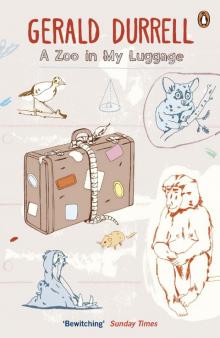 A Zoo in My Luggage
A Zoo in My Luggage The New Noah
The New Noah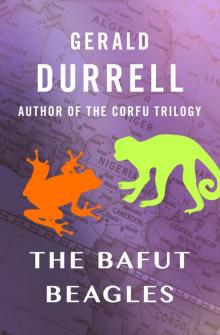 The Bafut Beagles
The Bafut Beagles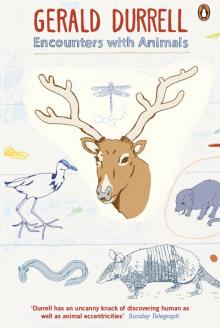 Encounters With Animals
Encounters With Animals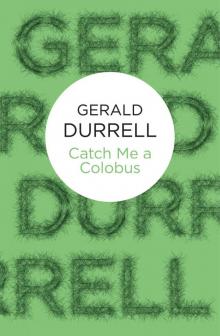 Catch Me a Colobus
Catch Me a Colobus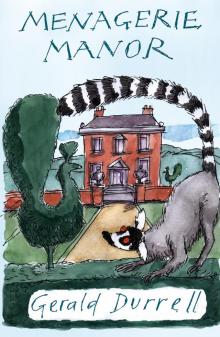 Menagerie Manor
Menagerie Manor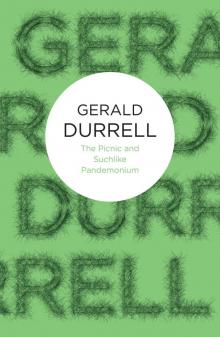 The Picnic and Suchlike Pandemonium
The Picnic and Suchlike Pandemonium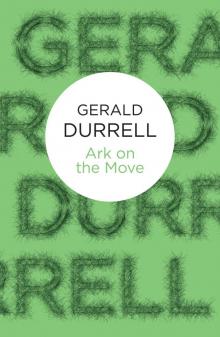 Ark on the Move
Ark on the Move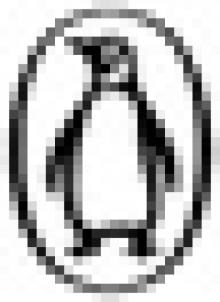 My Family and Other Animals
My Family and Other Animals Two in the Bush (Bello)
Two in the Bush (Bello)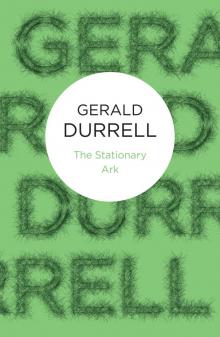 The Stationary Ark
The Stationary Ark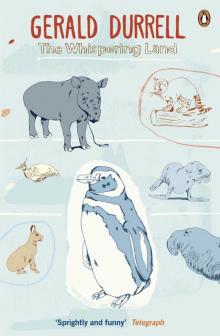 The Whispering Land
The Whispering Land Three Singles to Adventure
Three Singles to Adventure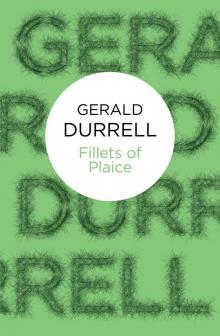 Fillets of Plaice
Fillets of Plaice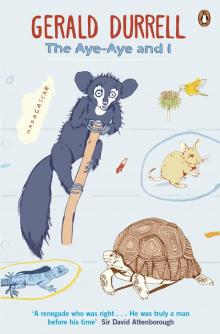 The Aye-Aye and I
The Aye-Aye and I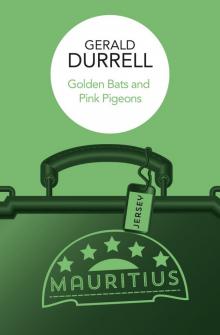 Golden Bats & Pink Pigeons
Golden Bats & Pink Pigeons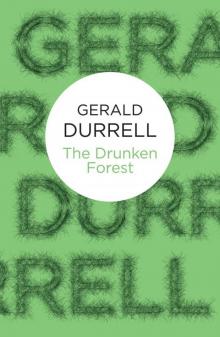 The Drunken Forest
The Drunken Forest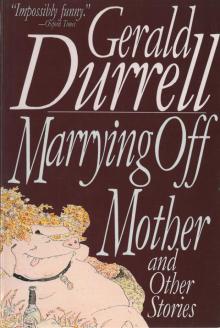 Marrying Off Mother: And Other Stories
Marrying Off Mother: And Other Stories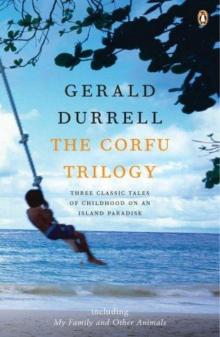 The Corfu Trilogy (the corfu trilogy)
The Corfu Trilogy (the corfu trilogy)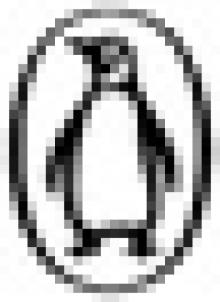 The Corfu Trilogy
The Corfu Trilogy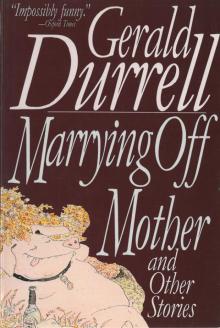 Marrying Off Mother
Marrying Off Mother Two in the Bush
Two in the Bush